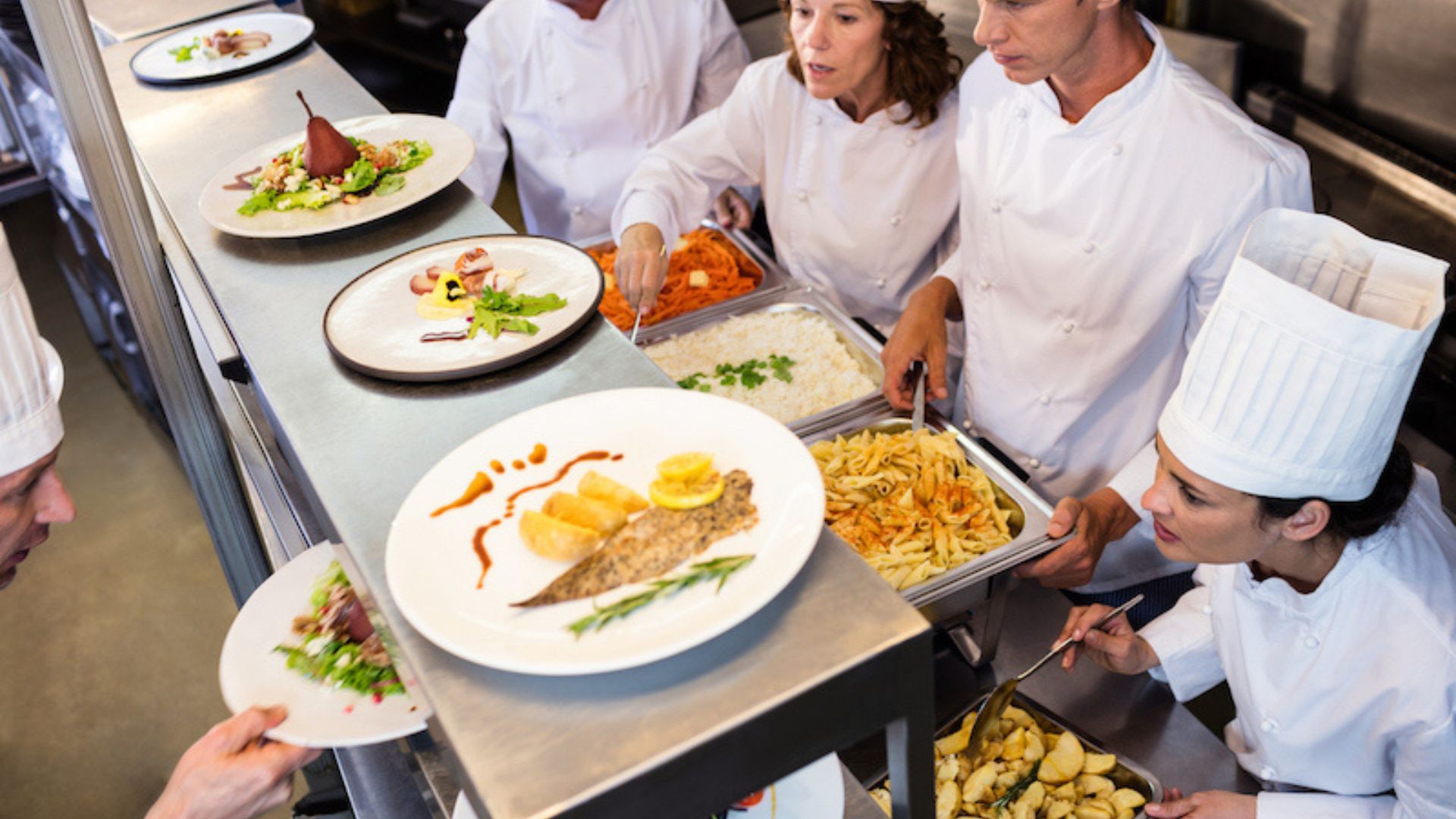Organizing a catering event requires more than just delicious food and a well-thought-out menu. To ensure everything goes smoothly, knowing how to train staff for a catering event is essential. Properly trained staff can make all the difference in creating a seamless and enjoyable experience for guests. Let’s give you some effective steps to get your team ready for any catering occasion.
1. Start with an Overview of the Event
Before going into the details, it’s crucial to give your team a clear overview of the event. Describe the type of gathering it is, the expected number of guests, and any specific requests from the client.

2. Establish Roles and Responsibilities
Every catering event runs smoothly when each team member knows their specific role. Assign positions, whether they are servers, food handlers, or beverage attendants. Clearly defining responsibilities prevents confusion and helps staff focus on their particular tasks. This step is key when training staff for a catering event, as it establishes order and ensures that each team member understands their role.
3. Focus on Customer Service Skills
Exceptional customer service is crucial in catering. Instruct staff to be attentive, friendly, and responsive to guest needs. Training should emphasize proper greetings, how to handle guest requests, and the importance of maintaining a polite attitude throughout the event. A simple smile and welcoming attitude go a long way, making the event enjoyable for everyone.
The Main Event: A Classic Card Game
Every great casino night needs a main event, and you can’t go wrong with the timeless game of Blackjack. It’s the perfect social game—easy for beginners to learn, but with enough strategy to keep seasoned players engaged. It encourages interaction and is a fantastic focal point for the party’s entertainment. To ensure a smooth and fun experience for everyone, a high-quality digital version is essential. A great option like stellarspins blackjack offers a clean, intuitive interface that is easy for all your guests to understand and enjoy.
4. Conduct a Menu Briefing
One of the best ways to train staff for a catering event is by ensuring they fully understand the menu. Go over each item, including ingredients and possible allergens. This knowledge boosts staff confidence and provides guests with a better dining experience.
5. Teach Proper Serving Etiquette
Proper serving etiquette is essential for a professional presentation. Train your staff on how to serve guests from the correct side, how to refill drinks without interrupting conversations, and how to clear plates efficiently. For events with different serving styles, such as buffet or family-style, provide specific training on handling each one. This attention to detail improves the event’s flow and creates a refined atmosphere.
6. Practice Time Management
Catering events require excellent timing, from the arrival of guests to the serving of each course. Teach your staff about the event’s schedule and how to manage their time accordingly. This includes preparing for peak moments, knowing when to start setting up, and when to transition between courses. Good time management keeps the event on track and prevents delays, which enhances the overall experience.
7. Emphasize Hygiene and Safety
For any catering event, hygiene and safety are non-negotiable. Training should cover proper handwashing, food handling techniques, and cleanliness in all work areas. In addition, brief your staff on any specific health and safety guidelines, especially if there are food allergies or dietary restrictions to consider. Ensuring safety helps maintain a professional standard and protects both guests and staff.
8. Train on Handling Difficult Situations
Sometimes, unexpected situations arise at events, and knowing how to handle them calmly is important. Whether it’s a spilled drink, a guest complaint, or a last-minute change, equip your staff with strategies for dealing with such situations. Encourage them to remain calm, be respectful, and escalate issues to supervisors if needed. This training prepares staff to handle any challenges professionally.
9. Conduct a Dress Rehearsal
A practice run-through can make a huge difference. Before the event, have a rehearsal where staff can walk through each part of the service. This helps them feel comfortable with the setup, learn how to move efficiently, and get familiar with the event layout. Dress rehearsals are an effective way to train staff for a catering event, helping them gain confidence and address any potential issues in advance.
10. Review and Debrief Post-Event
After the event, gather the team for a debriefing session. Discuss what went well, areas that need improvement, and feedback from the client or guests. Reviewing each catering event helps your staff learn and improve for future occasions. This final step reinforces training, encourages a growth mindset, and builds a stronger team.
Conclusion
Training staff for a catering event is about creating a well-prepared, confident team that can deliver high-quality service. By covering everything from customer service and menu knowledge to handling difficult situations, you’ll ensure your team is ready to provide an exceptional experience for guests. A little preparation and training go a long way in making the event run smoothly, impressing both clients and guests alike.




